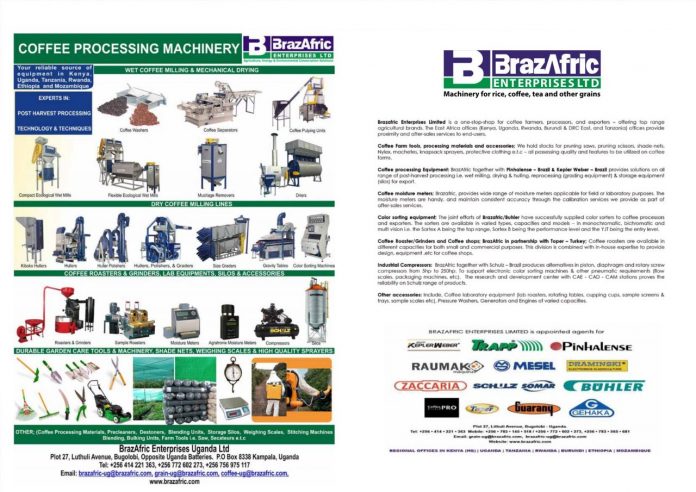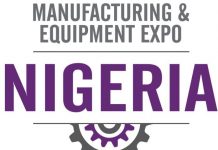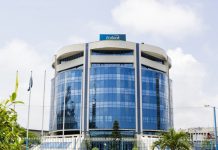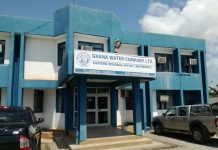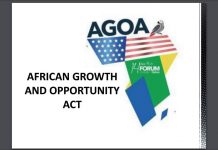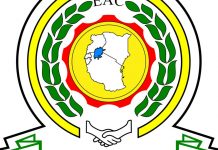Economic Outlook
Africa’s agricultural, mining and energy resources could boost the continent’s economic growth and pave the way for a breakthrough in human development, according to the African Economic Outlook 2013, released May 27 by the African Development Bank, the OECD Development Center, the Economic Commission for Africa, and the UN Development Program. The continent’s economic outlook for 2013 and 2014 is promising, confirming its healthy resilience to internal and external shocks and its role as a growth pole in an ailing global economy. Africa’s economy is projected to grow by 4.8 percent in 2013 and accelerate further to 5.3 percent in 2014. However, this growth has been accompanied by insufficient poverty reduction, persisting unemployment, increased income inequalities and in some countries, deteriorating levels of health and education, the report shows. The report says the primary sectors require sound land management, balanced and effective tax systems and the right mechanisms and incentives to cause an acceleration and diversification of the sources of growth. It calls on governments and investors to ensure that a fair share of the proceeds from natural resources and extractive industries accrue to society, and suggests that African countries can foster change and economic diversification actively, for example through corridors of development around power, transport and communication lines. Stable and transparent use of budgets is key to achieving that goal, the report says.
Brazil-Africa
Brazil is ramping up efforts to establish a “special relationship” with Africa in what Brazilian officials describe as a “strategic” move for the country’s foreign policy. It its latest move, Brazil announced plans to cancel or restructure some $900 million worth of debt for 12 African countries. In other moves, Brazilian President Dilma Rousseff has made three trips to Africa in the last three months, including her most recent to Addis Ababa, Ethiopia, for the 50th anniversary celebrations of the African Union; Brazil recently opened an agency to support investment and development in Africa; it has opened 20 new embassies in Africa in the last decade; its trade with African countries has increased fivefold since 2002; more than half of its technical cooperation resources is directed towards Africa amid requests from sub-Saharan countries for Brazilian cooperation in tropical agriculture, tropical medicine, vocational training, energy and social protection; and September 20012 saw the inauguration of the Brazil-Africa Forum in Johannesburg, South Africa, a platform for constructive dialogue on how to deepen the interaction between Brazil and Africa.
Financing
The U.S. Export-Import Bank authorized a $155.4 million direct loan to the government of Ghana to finance the design and construction of the Ridge Complex Hospital, the primary medical facility for the Greater Accra Region. Americaribe Inc., a Miami, Fla., subsidiary of the multinational Bouygues, will export the goods and services required for the project. When completed, the hospital will count among West Africa’s most advanced medical facilities, with a new 420-bed building housing a comprehensive diagnostic and treatment block and state-of-the-art maternity ward. Americaribe created Americaribe Ghana Ltd., a wholly owned unit registered in Ghana, to execute the job. HSBC London and the New York Project and Finance served as advisors to the Ghanaian government throughout the Ex-Im application and due diligence processes.
Investment
Malaysia’s foreign direct investment into Africa surpassed China’s and the gap is widening, according to United Nations data. A survey of foreign investment into and out of the five BRIC countries (Brazil, Russia, India, China, South Africa) revealed that China’s march into Africa lagged the flow of cash from Kuala Lumpur. Malaysia was the third biggest investor in Africa in 2011 (the latest year for which data is available), behind France and the United States, pushing China and India into fourth and fifth positions. Malaysia’s portfolio of global FDI more than quintupled over the past decade to $106 billion by the end of 2011. Of that, $19.3 billion was in Africa, more than the $16 billion of African investments owned by China and the $14 billion held by India. The five BRICs have escalated their combined investments in Africa from almost nothing in the 2000-2002 to 4 percent of their outward FDI in 2009-2011, making Africa a much more important investment destination for them than it is for the European Union or the United States. Malaysia sent 24 percent of its outward FDI to Africa in 2011, mainly to Mauritius in that year.
Ports
Liberia opened a newly reconstructed 600-meter (about 1,969-foot) wharf at the Freeport of Monrovia. The world-class wharf will be operated by Netherlands-based APM Terminals under a 25-year build-operate-transfer agreement signed with the Liberian government in 2010. It is APM Terminals’ first 100-percent-owned port concession in Africa. New infrastructure investments at the 42-acre concession site will include roadway reconstruction, yard paving, new offices and gates and cargo handling technology to increase capacity and efficiency, and improve safety standards and performance. APM Terminals will invest about US$120 million over the 25-year concession term in improvements, equipment and training, and an additional $25 million to upgrade the container yard, buildings, gates and safety activities. With interests in 11 port facilities in 10 African nations, the company is the largest terminal operator in Africa (outside of South Africa). Its operations encompass nine facilities in eight nations within the high-growth West African region, including West Africa’s busiest container terminal at APM Terminals Apapa, Nigeria. A proposal for a new deep-water 1 million TEU annual capacity facility at Badagry, Nigeria, is moving forward. Other APM Terminals port projects are currently under way in Luanda, Angola; Abidjan, Côte d’Ivoire; Suez Canal, Egypt; Apapa, Nigeria; and Pointe-Noire, Republic of Congo.
Abidjan Port Authority (Côte d’Ivoire) awarded the contract to manage the port’s second container terminal, TC2, to a consortium comprising Bolloré Africa Logistics, APMT and Bouygues. The contract is a 21-year concession during which the consortium plans to invest more than 300 billion CFA francs, about €450 million, within the scope of the venture. The consortium committed to building a 35-hectare open-space reserve adjacent to a dock extending more than a kilometer with 18-meter deep foundations, to be financed by the Port. It also agreed to install three ship-to-shore gantries along with 10 electric Rubber Tyred Gantries as part of the project’s innovative and environmentally friendly facilities. The goal is to attract the greatest number of shipping companies to the new terminal, scheduled to start activities in 2016, with docking services for large-capacity ships capable of transporting at least 8,000 containers per vessel.
Logistics
Bolloré Africa Logistics Mozambique, in partnership with the Mozambican public ports and railways corporation CFM, inaugurated the country’s first port terminal exclusively serving international oil and gas companies doing business in Mozambique. The new terminal in Pemba, located some 2,000 km northeast of the capital Maputo, will ensure continuous deliveries for this sector’s key players, allowing them to operate offshore oil and gas facilities under optimal safety and reliability conditions, while equipping Mozambique with the resources to achieve its energy development. Bolloré Africa Logistics Mozambique’s network covers the country’s major cities of Maputo, Beira, Pemba, Tete, Manica, Nacala and Quelimane. Mozambique anticipates a near 8 percent growth rate in 2013.
Transportation
For the first time in Kenya’s history, the Upper Eastern Region will now enjoy the convenience of a fully-fledged commercial airport ahead of the Isiolo Resort City development project. The new Isiolo Airport, developed and managed by the Kenya Airports Authority, is expected to promote development in the vast region. It is one of the major components envisioned under the Lamu Port-Sudan-Ethiopia Transport (LAPSSET) corridor development, which is a Vision 2030 flagship project. Kenya’s Vision 2030 is also focused on the completion of the Isiolo- Marsabit-Moyale highway to foster development across the region. The region’s development plans under Vision 2030 will also involve the establishment of a fully-fledged export processing zone, livestock and related food processing plants, an oil refinery and the proposed Isiolo and Lake Turkana Resort Cities.
Manufacturing
Intensified competition from emerging markets like Africa is a top concern of U.S. companies, particularly among mid-sized enterprises, according to the Allianz Risk Barometer 2013 survey. The concern is well placed. The Economic Policy Institute estimates that between 2001 and 2011, 2.7 million manufacturing jobs in the U.S. were lost or displaced by trade with China alone. Slow growth at home is forcing U.S. manufacturing and technology companies to look for new revenue sources, including sourcing in emerging markets. The Allianz Risk Barometer 2013 survey was conducted at the end of 2012 by Allianz Global Corporate & Specialty (AGCS), the Allianz Group’s center for corporate and industrial insurance. The survey gathered opinions from 529 corporate and industrial insurance experts from across the Allianz Group on the most important risks that companies in particular regions and sectors face in 2013.


